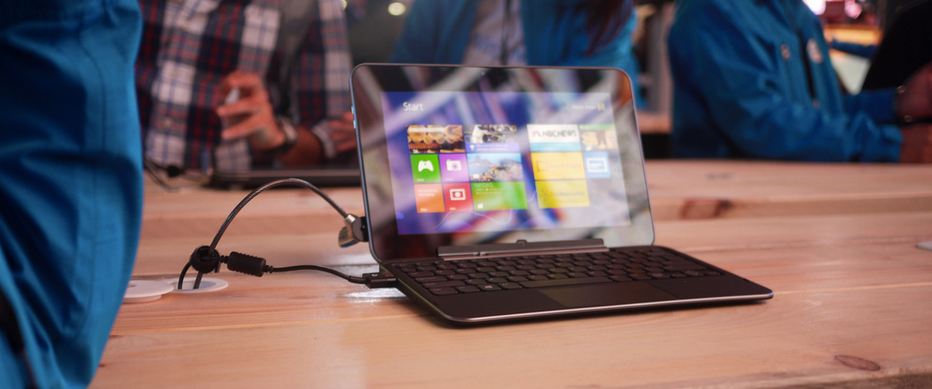

Citing popular demand, HP is now pushing personal computers running Windows 7 over Windows 8 on its online store, a simple slight to Microsoft’s nascent Windows 8.x platform.
(Update: The ever excellent Ed Bott has some good notes on what HP is not doing — running scared back into Windows 7′s arms — but more that it is refocusing its marketing notes. It’s worth reading.)
It’s fair to say that Windows 8 had a rough start to market, and while a firm improvement, Windows 8.1 hasn’t been met with the enthusiasm that Microsoft likely hoped. Windows 8 and Windows 8.1 control a shared 10.5% of the global traditional computing market, as measured by NetMarketShare.
Still, with a revamped user interface, and a new focus on mobile computing, many consumers have found the new operating system confusing. Nothing I have said thus far is controversial I think, so let’s move on to the why of HP’s decision.
HP think has two goals in mind for selling, and pushing Windows 7 machines at this moment: Increase its unit volume by selling machines more comfortable to its customer base, and reducing the cost of support for newly sold systems. Friends of mine that work with OEMs have told me that margins are so low for some, that a single support call to the manufacturer erodes a unit’s entire margin.
So reducing support calls is a key metric for OEMs. Which operating system, on a per capita system basis do you think generates more call volume for OEMs, Windows 8.x or Windows 7? Even if you could make the argument — and many will, of course — that Windows 8 is intrinsically better than Windows 7 in a number of ways, if you are an OEM you simply don’t care: You want fewer support calls, not necessarily a slightly better long-term user experience with your machine. The margin pressure on the former event is more important than future potential margin on the latter.
The HP decision has another dimension worth mentioning, I think. By making this decision now, HP is almost refuting its own holiday lineup of Windows 8.x-based machines. So, it’s saying that whatever it had in place through December, it now wants to revamp. Given that Gartner tracks HP as dropping quite a lot of market share in the PC market during the fourth quarter, a shakeup isn’t too surprising.
Microsoft still sells an OS copy either way, so it doesn’t care, right? Wrong. Every Windows 7 PC that ships instead of a Windows 8.x PC removes a future Windows Store user. Microsoft needs every download inside that store that it can muster, to drive developer interest. And so continued Windows 7 usage harms the ability of Windows to move into the new computing era.
That’s a Microsoft problem. HP just wants to sell more machines at better margins.
Top Image Credit: Flickr
Read more : Parsing HP’s Decision To Push Windows 7 More Than A Year Into The Windows 8 Era


0 Responses
Stay in touch with the conversation, subscribe to the RSS feed for comments on this post.